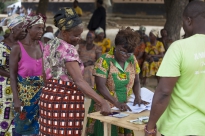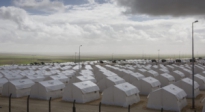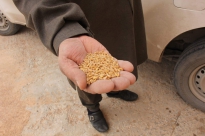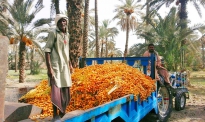News
.jpg)
01 Sep 2017
Last July, the United Nations Industrial Development Organization (UNIDO) and FAO signed an interagency agreement within the framework of a UNIDO/Global Environment Facility (GEF) project, to implement the Strategic Action Programme in support of the sustainable management of the Gulf of Mexico Large Marine Ecosystem. In this context UNIDO, as the implementing and contributing agency, entrusted FAO with the task of providing technical assistance to the Mexican national fisheries institute (Instituto Nacional de Pesca – INAPESCA) to execute the project’s key activities. UNIDO`s total contribution amounts to USD 1.8 million.
These activities mainly consist in supporting the...
24 Aug 2017
FAO and UNICEF are strengthening their partnership to promote the expansion of social protection as one pathway out of poverty. A new joint study refutes some of the misperceptions and criticisms around cash transfers in the context of sub-Saharan Africa, the region currently home for three quarters of world’s extreme-poor. These myths include: “cash is wasted on alcohol and tobacco”, “transfers are just hand-outs”, “cash creates dependency”, “transfers lead to negative economic...
17 Aug 2017
A new FAO project targets Syrian refugees and host communities in Turkey, for development of vocational skills in the agriculture sector. The aim is to provide employment opportunities for some 900 people in five provinces of Southern Turkey: Adana, Gaziantep, Isparta, Mersin and Sanliurfa.
With a budget of US$ 1.7 million, the project is financed by the United Nations High Commissioner for Refugees (UNHCR), with Turkey’s Ministry of Food, Agriculture and Livestock as lead executing partner and FAO as implementing agency.
10 Aug 2017
The Government of Libya has signed a USD 3.5 million agreement with FAO to strengthen its technical and functional national capacities in agriculture. The project aims to build capacities and to ensure more efficient and effective governmental agricultural support services to achieve greater synergies and impacts.
After hydrocarbons, agriculture is the second most important sector in Libya’s economy. However, the socio-economic and environmental settings in which the agricultural sector operates present a number of challenges, such as low productivity and climate conditions, characterized by little and fluctuating rainfall, limited water resources and poor irrigation systems.
“Libya has recognized the fundamental role of...
09 Aug 2017
A range of problems in the agriculture sector in South Western border districts of Balochistan will be addressed simultaneously capturing some specific opportunities in the agriculture sector through the Australia Balochistan Agri-business Programme-Phase Two (AusABBA II) .